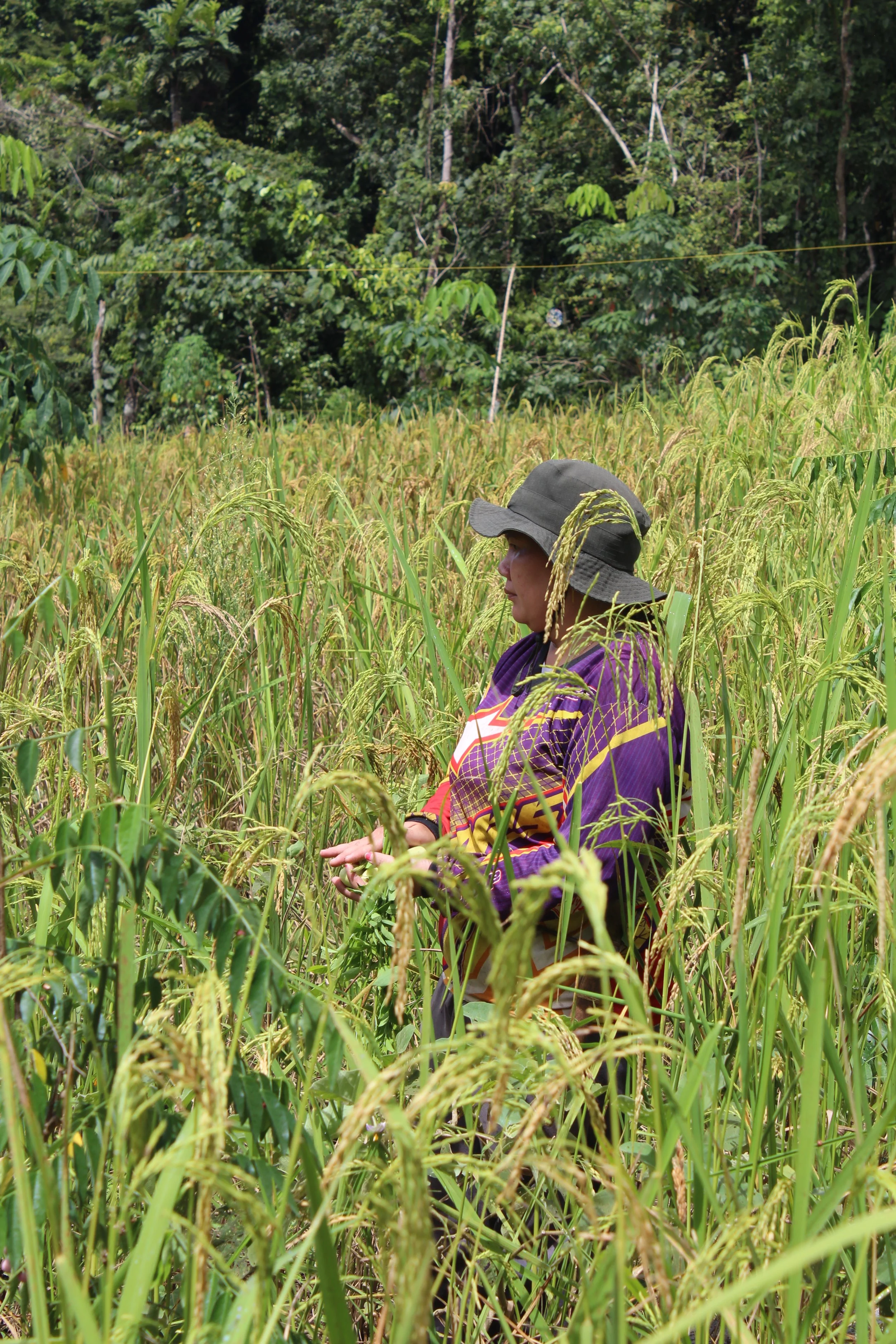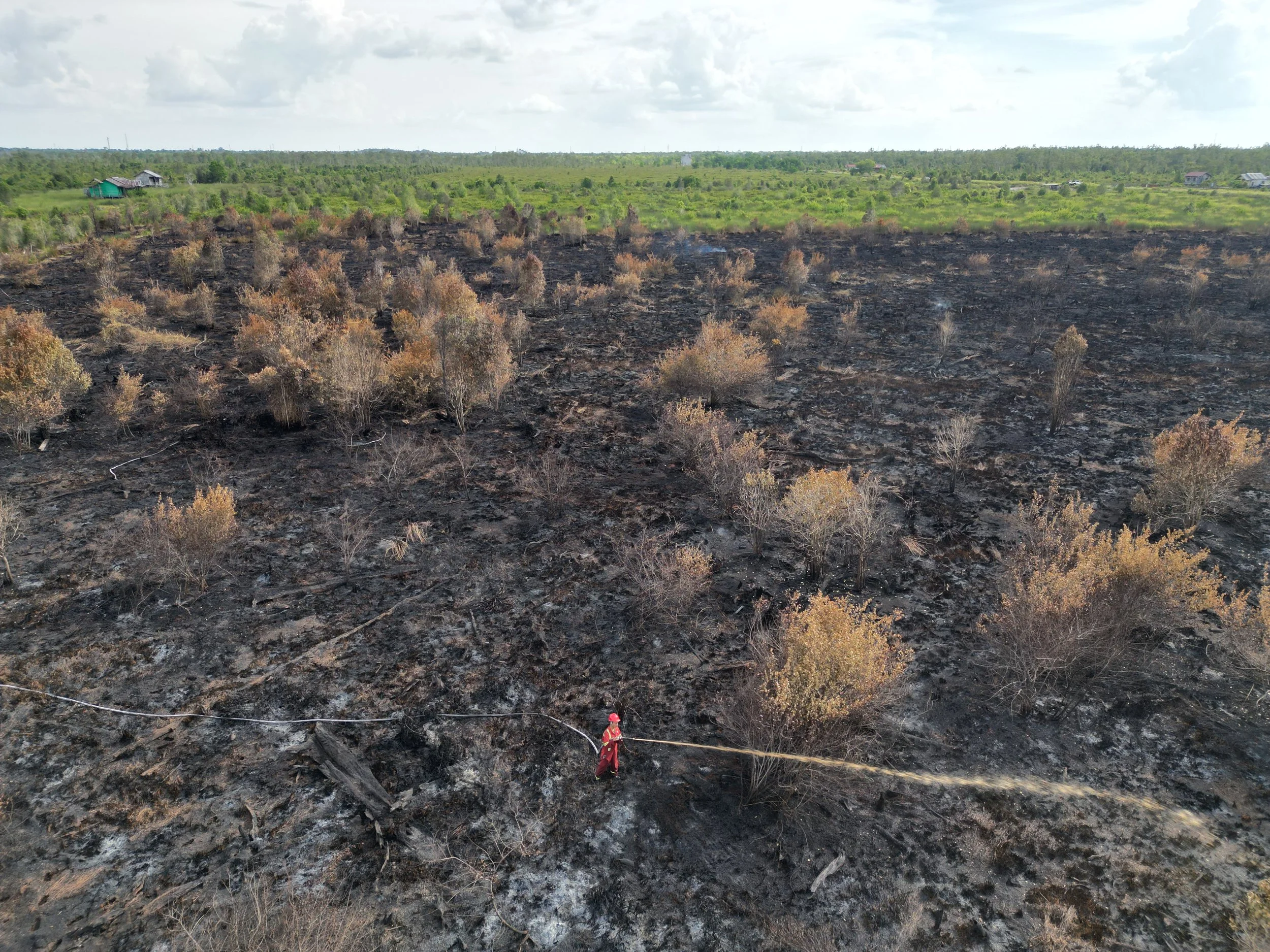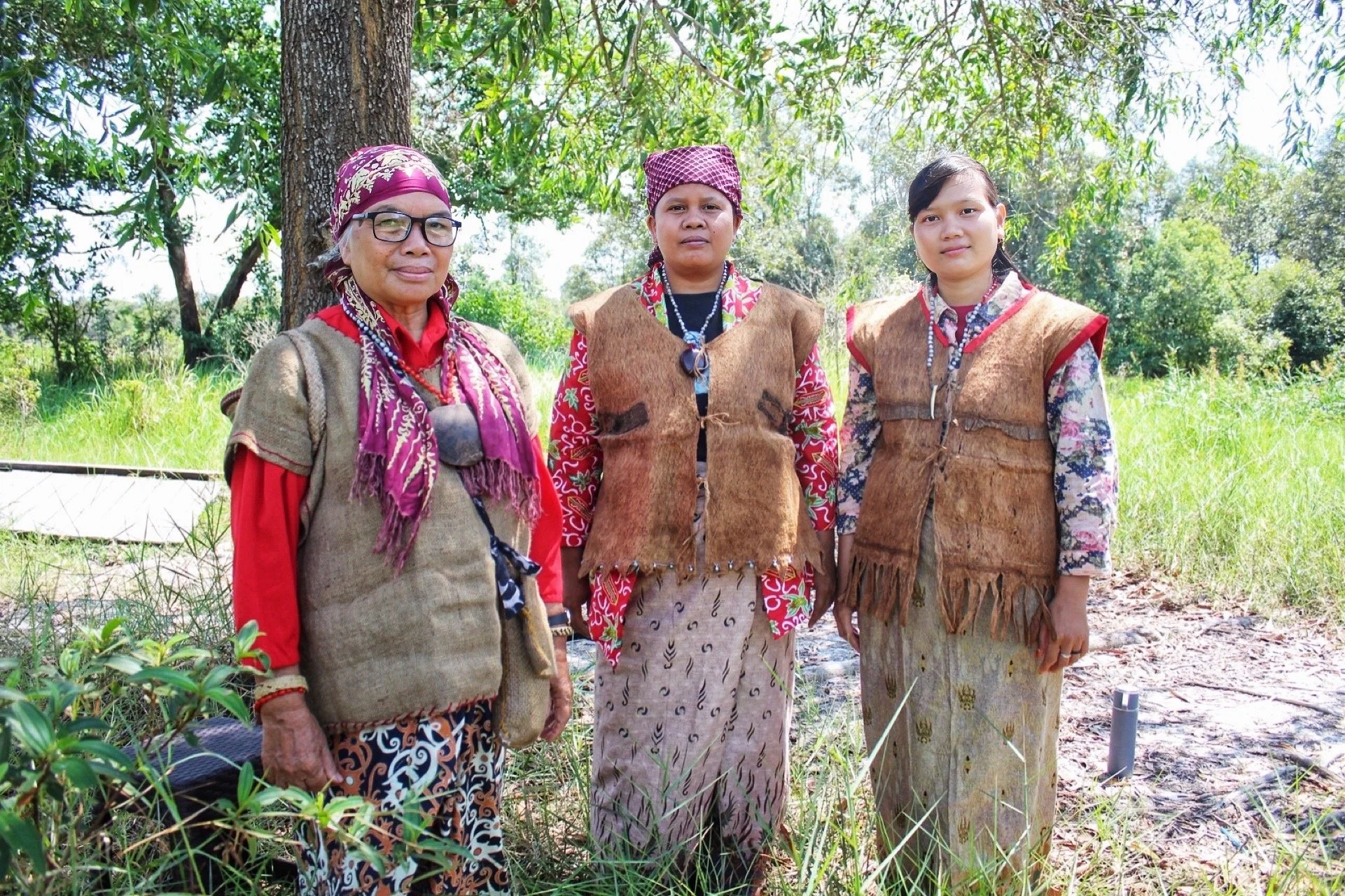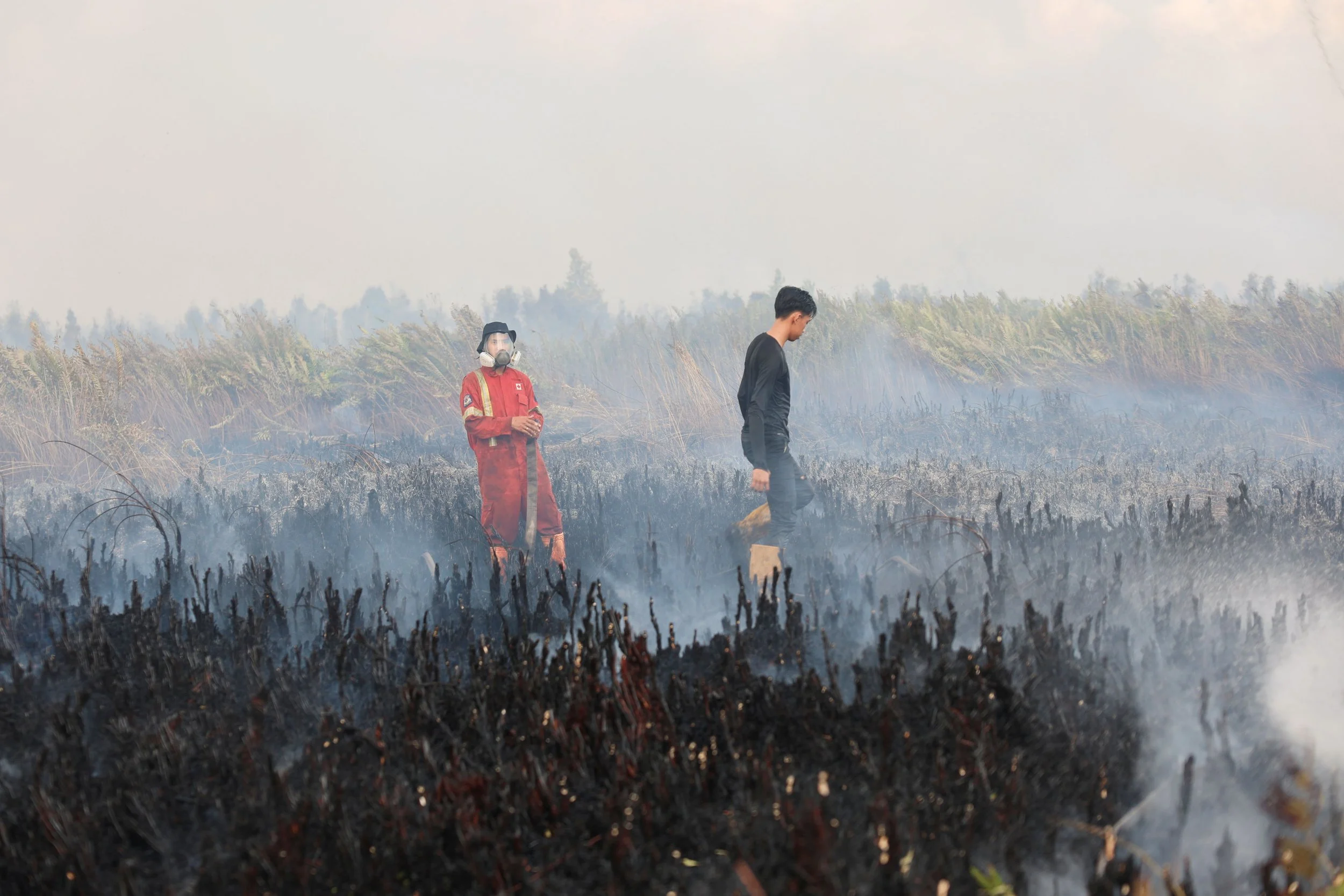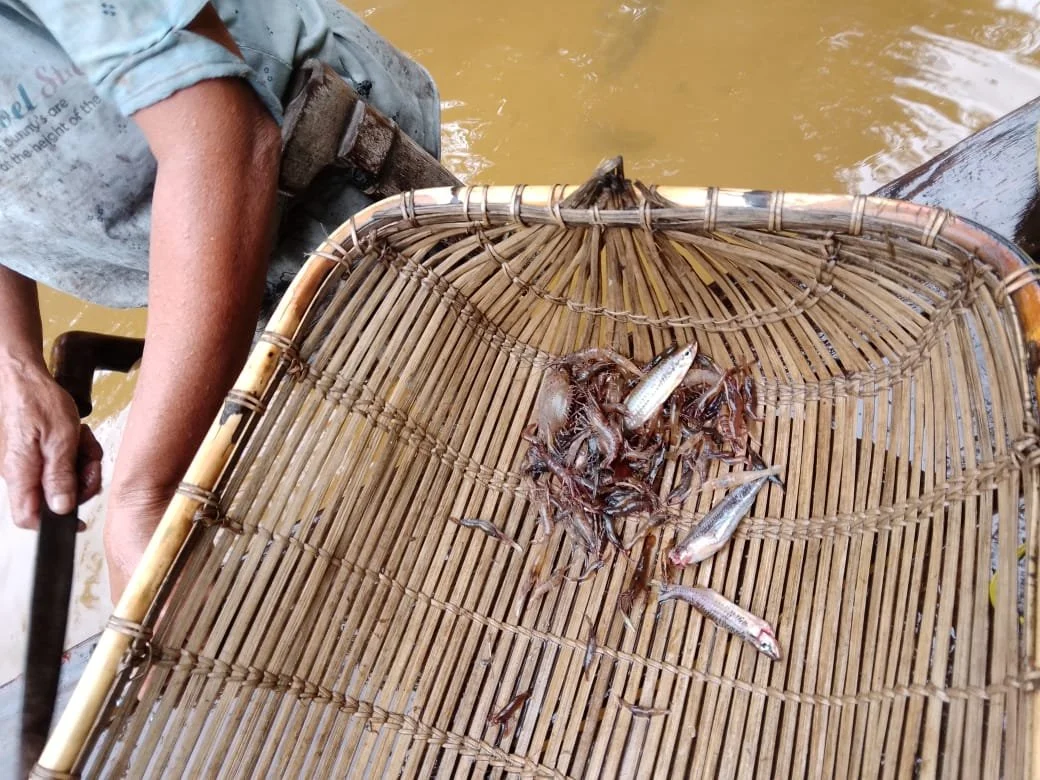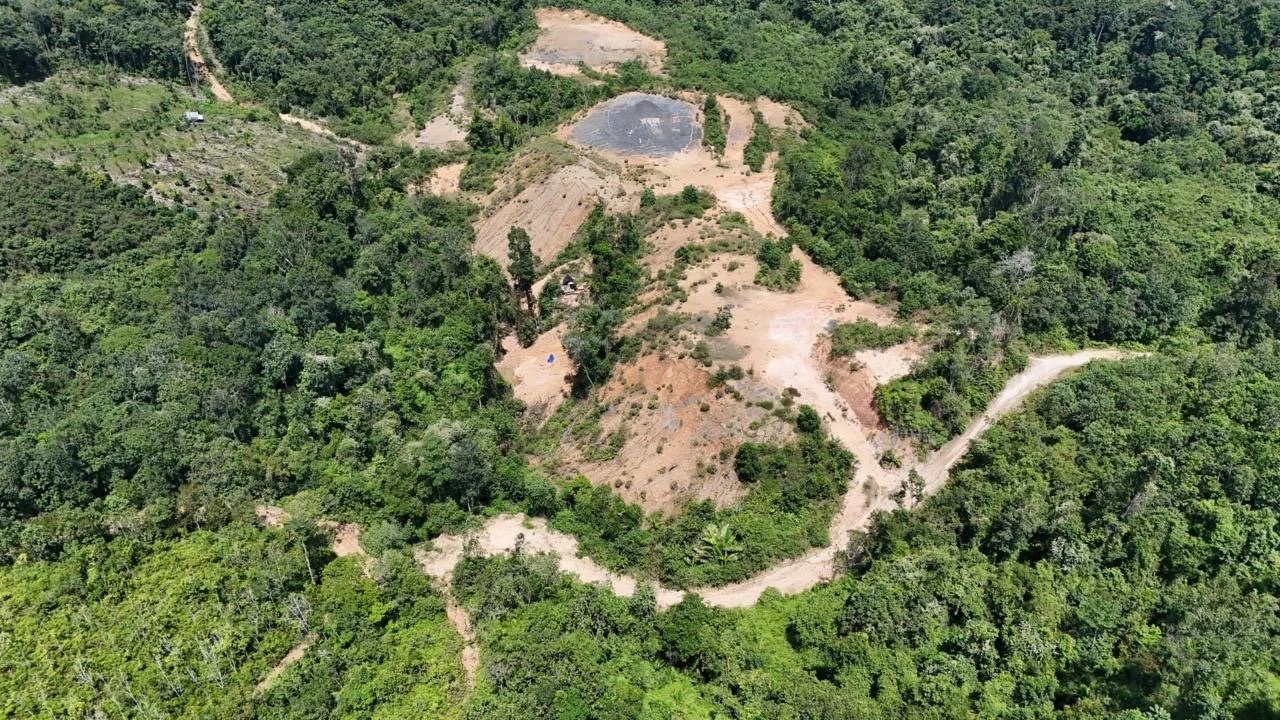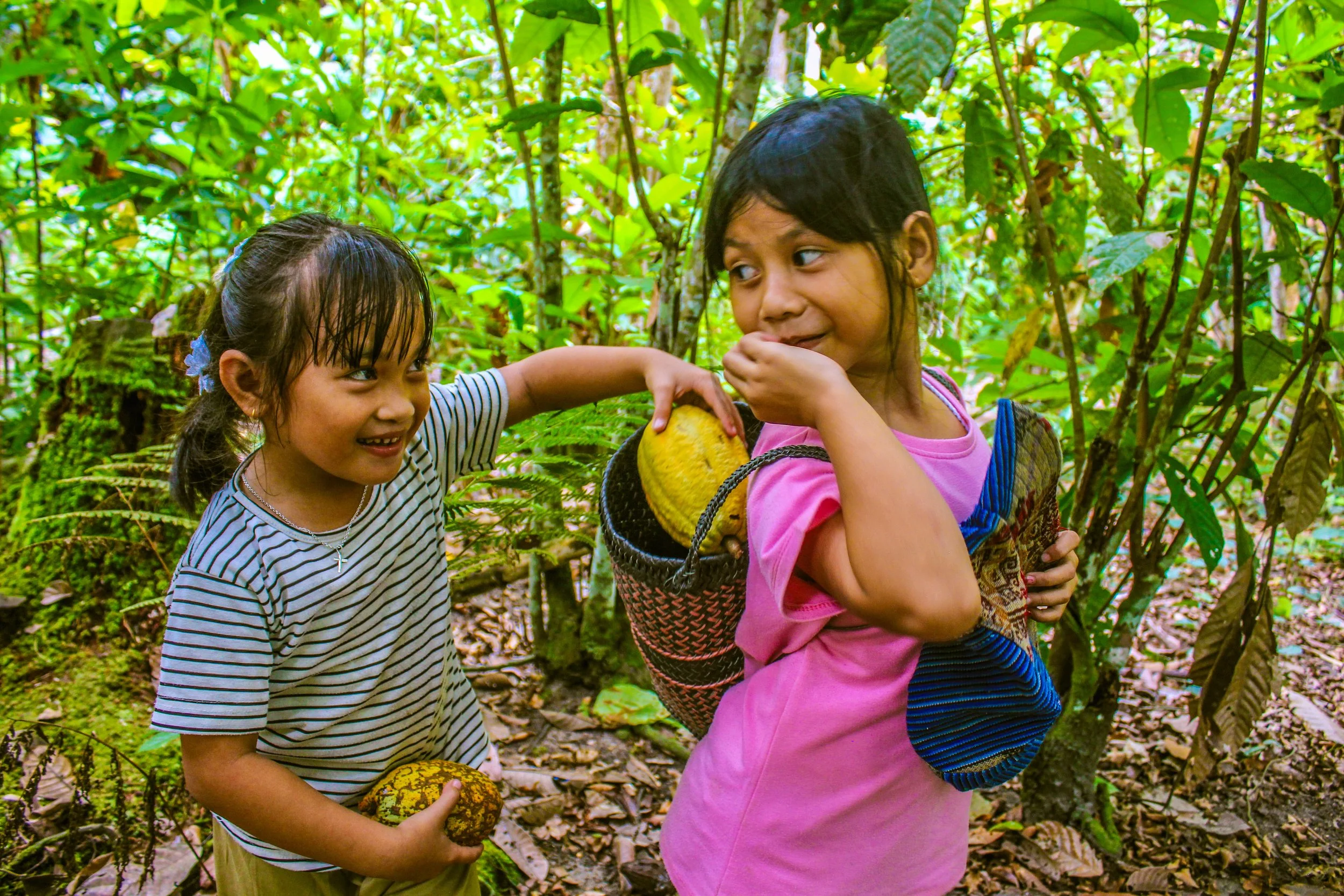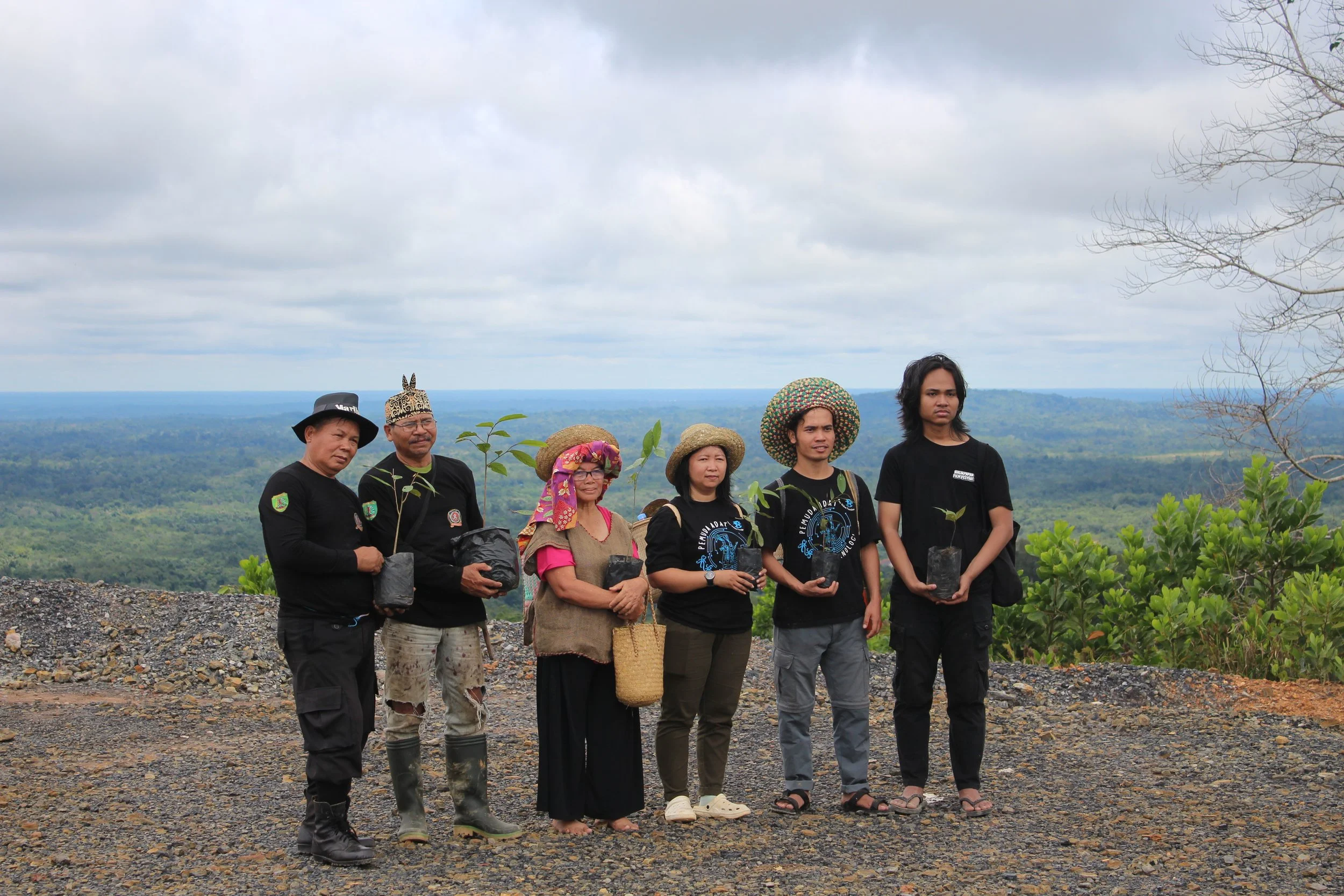In Borneo, a struggle to keep the Dayak flame alive
Fire is a key element of Dayak culture. Can it survive an Indonesian ban?
Forest fire in Palangkaraya, Central Kalimantan that happened in 2023. Photo: Manuel Bergmann
As the Indigenous Dayak peoples of Borneo, storytelling is a core pillar of our way of life.
Ibu Mardiana is a village elder who holds many of our people’s stories. We go to her to learn about the history of our land and our people.
Ibu Mardiana (left) and two Indigenous women from Gunung Karasik, East Barito Regency. Photo: Ranu Welum Media
We go to her to learn about the histories of our people and the state of our forests in the face of new laws and the devastation of land grabs. We ask her to share her stories so that we can share them with you now.
“In the past, when we went to the forest, we never went home empty-handed – at the very least, we brought home a basket of fruit,” Mardiana recalls. Her trembling voice sounds like the wind carrying sweet memories of the past.
The Youth Act Kalimantan firefighting team tackle the 2023 fires. Photo: Manuel Bergmann
The Dayak way of fire
Kalimantan, the Indonesian part of Asia’s biggest island, Borneo, is a tropical oasis of forests and peatlands. This is our homeland as Indigenous Dayak people.
Kalimantan is also a land of fire.
For many generations, our people have practiced manugal – a traditional method of burning land to plant rice.
But manugal is more than just a farming technique for the Dayak people. It’s a collaborative project – work that we all come together as a community to support.
Manugal is an integral part of Dayak culture and knowledge. Our people knew when it was appropriate to burn the land, ensuring the fire did not spread to other areas.
We knew how to work with nature. Practicing manugal helped clear layers of dry leaves, making the land less prone to wildfires.
But after devastating wildfires in 2015, the Indonesian government banned slash-and-burn agriculture – including manugal.
“Now, few of our people still dare practice manugal,” Mardiana tells us.
A Dayak woman check on her paddy field, Gunung Karasik, East Barito. Photo: Ranu Welum Media
Choking on fumes
In 2023, Kalimantan experienced significant forest and land fires burning over 1 million hectares – a fivefold increase from 2022.
Thick smoke resulted by peat fires in Palangkaraya (2023). Photo: Ranu Welum
The haze from forest fires choked Kalimantan for months, damaging the health of our people. Schools were forced to close, respiratory illnesses surged and traditional food sources were destroyed.
The thick smoke from these fires caused thousands of cases of acute respiratory infections, with children and the elderly being the most vulnerable. Many Indigenous families had to evacuate their homes, leaving behind their ancestral lands.
“Our parents often tell us that they still vividly remember when the forest was a playground for children and a source of food for families,” said Mardiana.
“Now, we see their grandchildren growing up in a different environment – without forests, without clear rivers and without the traditions that used to guide their lives.
“I fear that the generation after us will never know what it is like to live in harmony with nature.”
The impact of these fires extends beyond just air pollution. Ash and toxic particles from the burning land seep into rivers, contaminating water sources that Indigenous communities rely on. What was once a source of life has now become a carrier of disease, making access to clean water increasingly difficult.
Clean water, once easily available, is now a rarity. The community no longer meets regularly by the riverbed.
Sitting beside Mardiana, we see her frown. “The rivers have disappeared.”
Dayak people used to obtain all of their fish from local rivers. Photo: Sarasi Sinurat
Land grabs and palm oil
Sacred sites, which are very important to the Dayak people, have also been lost to land grabs for mining and oil palm plantations.
The rivers that once provided clear drinking water are now gone, buried beneath land that has been dug up and leveled to make way for large trucks.
Forests that were once places of worship and protection have been turned into industrial zones.
Local fruits like the jackfruit relative paken, wild mango ihau and rambai and other important sources of food have been uprooted, leaving behind only stumps of rotting wood.
“How can our bellies be full when the forest is gone?” Mardiana asks bitterly.
Borneo, the island Kalimantan shares with East Malaysia and Brunei, was once known as the lungs of the world. It’s now just a shadow of its former glory.
Gunung Karasik, East Barito. Photo: DAAI TV
The Dayak agricultural way of life is increasingly constrained by economic pressures and regulations that limit traditional practices. Rice farming, once a major source of food and income, has become difficult due to widespread deforestation.
Coal mining hole next to Gunung Karasik village, East Barito. Photo: Mardiana
As our traditions and access to land erode, more and more families are forced to buy rice at higher prices.
This dependence on markets leaves our communities vulnerable to economic shocks. While we used to be able to grow our own food, we now have to spend increasing amounts of money to fulfill our daily needs.
“The forests are where we used to go for medicine and food,” Mardiana tells us.
What’s even more painful is that we see how large corporations have giant machines run amok, blocking rivers and clearing our forests for oil palm and mining.
A local elder once told me: “When we burn, we are criminals. When they burn, they are businessmen.”
What does the future hold?
Younger generations now rarely recognize or practice manugal.
I once asked my younger cousin if he knew how to grow rice through manugal. He laughed and shook his head: “We only buy rice from the market now.”
What will happen if future generations never learn our customs?
Many Dayak youth now go to school in the city or work in other sectors far from our ancestral lands. Knowledge of manugal and other traditional practices is in danger of dying out.
While the ban on burning was introduced to reduce the risk of forest fires, our Indigenous knowledge also has an important role to play in sustainable land management in Borneo.
For the Dayak people, forests aren’t just a source of food or shelter. They’re home to our ancestors. Our forests are where we perform our traditional rituals. They are the center of our spiritual life.
When forests are cut down, it’s not just the trees that are lost, but also our connection to our ancestors and our Indigenous identity.
We care for our land. We want the freedom to tend to land and carry on with our traditional techniques such as manugal.
Despite the ban, some Dayak communities are still trying to maintain their traditional practices more privately. Deep in the heart of Kalimantan, some elders still wake before dawn, gathering in secret to perform manugal as their ancestors did. They know the risks but refuse to let their traditions die.
Meanwhile, other communities have started experimenting with agroforestry, blending traditional knowledge with modern techniques to sustain their way of life.
Dayak young girls harvesting cocoa. Photo: Ranu Welum Media
Various Indigenous organizations are also advocating for Dayak rights to ensure that their voices are heard by the government.
Protecting the forest means protecting our lives and culture. It means safeguarding our practices for future Dayak generations to inherit.
written by: Sarasi Silvester
Older generation and young generation plant trees together: Photo: DAAI TV
